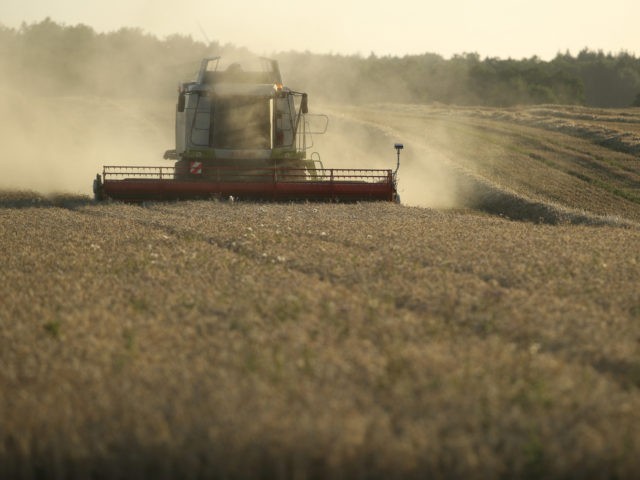Germany’s Minister for Agriculture has called on the EU to cut red tape to allow farmers to grow more wheat in response to the burgeoning Ukraine food crisis.
Farmers in Germany should be allowed to grow more wheat in order to combat the ongoing global food crisis, the country’s Agriculture Minister, Cem Özdemir, has argued.
However, in order to achieve this, some EU red tape would need to be cut which complicates a production hike for the grain.
According to a report by Der Spiegel, Minister Özdemir has now called on the EU to delay new soil protection rules which are due to be enforced by Brussels in 2024 in order to allow farmers to make up for a lack of available produce as a result of the ongoing Russian invasion of Ukraine.
These forthcoming rules will forbid farmers from planting the same crop on any given field for two years in a row, so — Özdemir argues — a delay in the measure would make crop planning easier for farmers in the short to medium term.
The proposal has been taken well by local farmers, who appear eager to increase their level of wheat production in order to tackle supply shortages currently being faced in Germany and beyond.
“We want to be able to continue growing bread wheat to the same extent as before. But that can only be a first step,” said State Farmers’ Association President Joachim Rukwied.
“We are now awaiting proposals from Brussels and Berlin on how to solve the food crisis,” the farming representative continued.
The Agriculture Minister’s enthusiasm to get more wheat crops in the ground is understandable considering the current food situation in Europe and beyond, with a shortage of both food and fertiliser exports from Ukraine and Russia creating substantial fears regarding a global food crisis which will disproportionately hit the developing world.
This looming crisis is something that German officials now appear to be all too aware of, with the country’s Development Minister, Svenja Schulze, warning that the world could soon be facing the worst food crisis since the second world war.
“The situation is highly dramatic,” the minister told the German publication Bild. “Due to Corona, extreme droughts and now the war, food prices worldwide have increased by a third and are now at record levels.”
“The World Food Program currently assumes that far more than 300 million people are suffering from acute hunger and has to constantly revise its forecasts upwards,” she continued. “The bitter message is that we are facing the worst famine since World War II, with millions of dead.”
This warning echoes that of the World Food Programme’s Executive Director David Beasley, who has said that a multitude of world events have led to a “perfect storm” of food insecurity.
“If you think we’ve got Hell on earth now, you just get ready,” the former Republican governor for South Carolina warned, saying that Europe faced a migrant wave of biblical proportions if the issue of food is not solved.
“If we neglect northern Africa, northern Africa’s coming to Europe. If we neglect the Middle East, [the] Middle East is coming to Europe,” he emphasised.

COMMENTS
Please let us know if you're having issues with commenting.